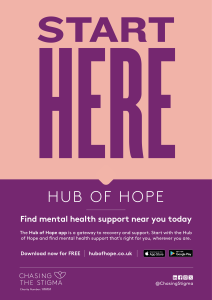Wargrave House School provides day places for children aged 5—16. The aim of Wargrave House is to provide a ‘Whole School’ approach where the goals and the strategies are the same for teachers, carers and parents.
Curriculum
We aim to ensure equality of opportunity in access to all aspects of the curriculum regardless of the nature and degree of disability of the young autistic person.
Each child, therefore, is regarded as an individual with his/her own singular and special needs. This ensures that their own personality, ability and interests are catered for so as to promote and enhance the spiritual, moral, cultural, intellectual and physical development of the students at the school and in society.
All students follow a broad, balanced and relevant curriculum based on the National Curriculum. The school has identified two essential areas of the curriculum which embrace all other curriculum areas and which are seen as priority areas for development in students with autism – these are Communication and Personal Development.
Wargrave House School provides:
- Good Provider
- Extensive range of education, social and care provision based on individual student needs
- To compensate for the disadvantage society may place upon young autistic people.
- Small classes (maximum 8) with high staff to student ratio
- Speech and Language Therapy
- Sensory Integration Occupational Therapy
- Nordoff Robbins Music Therapy
- Rebound Therapy
- Extensive range of sporting, outdoor education and recreational activities
- Nationally accredited academic and vocational courses
- Professional staff trained to deal with behaviours of concern.
- Calm, purposeful atmosphere
- Behavioural, Emotional and Social Therapeutic (BEST) curriculum
- Emphasis on healthy lifestyles
Main School-Key Stage 1-4 Curriculum Statement
Intent: (What do we want our students to learn and why?)
We intend to work collaboratively in order to provide opportunities for all students to thrive and integrate into our school and the wider community.
To this end, our curriculum aims are to develop:
- Engaged, inspired and motivated students who enjoy and contribute to learning, make progress and are challenged to achieve above and beyond expectations;
- Confident individuals who are able to lead safe, healthy & fulfilling lives, making successful transitions in to adulthood;
- Responsible citizens who share ‘British Values’ and make a positive contribution to life in modern Britain.
“If you’ve met one person with autism, you’ve met one person with autism.”
Personalised learning is central to our philosophy. All of our students have unique qualities and needs and there is a flexible approach to the curriculum as we build a profile of each student’s educational and social & emotional needs, developed through underpinning Education, Health and Care Plans (EHCPs). Academic learning is important, but we understand that if a student’s social and emotional needs are not met then there will be limited progress in meeting wider educational outcomes and a poor quality of life. Our curriculum therefore focuses firstly on addressing the core difficulties that lie at the heart of autism. These include problems with ridged thinking, managing uncertainty and change, social interaction, and understanding and managing emotions. We focus on developing the key skills of communication, cognition, independence, physical development and self-help, all transferrable skills that equip children and young people for life beyond the school.
We develop a personalised learning pathway for each student as we prepare them for adulthood. We aim to unlock their potential and to maximise their progress through ensuring that we meet their individual aspirations, employment ambitions, whilst developing independence, and enabling them to be healthy, happy and active members of society.
Wider key educational outcomes linked to attitudes and attributes, knowledge and understanding and transferable skills and accreditation/qualifications are also key to our intent. Students follow an adapted National Curriculum. This can represent simple curriculum modifications for some, through to tailored individual curriculum for others. We place particular emphasis on improved numeracy, literacy and technology skills, which together with EHCP outcomes support student employability.



